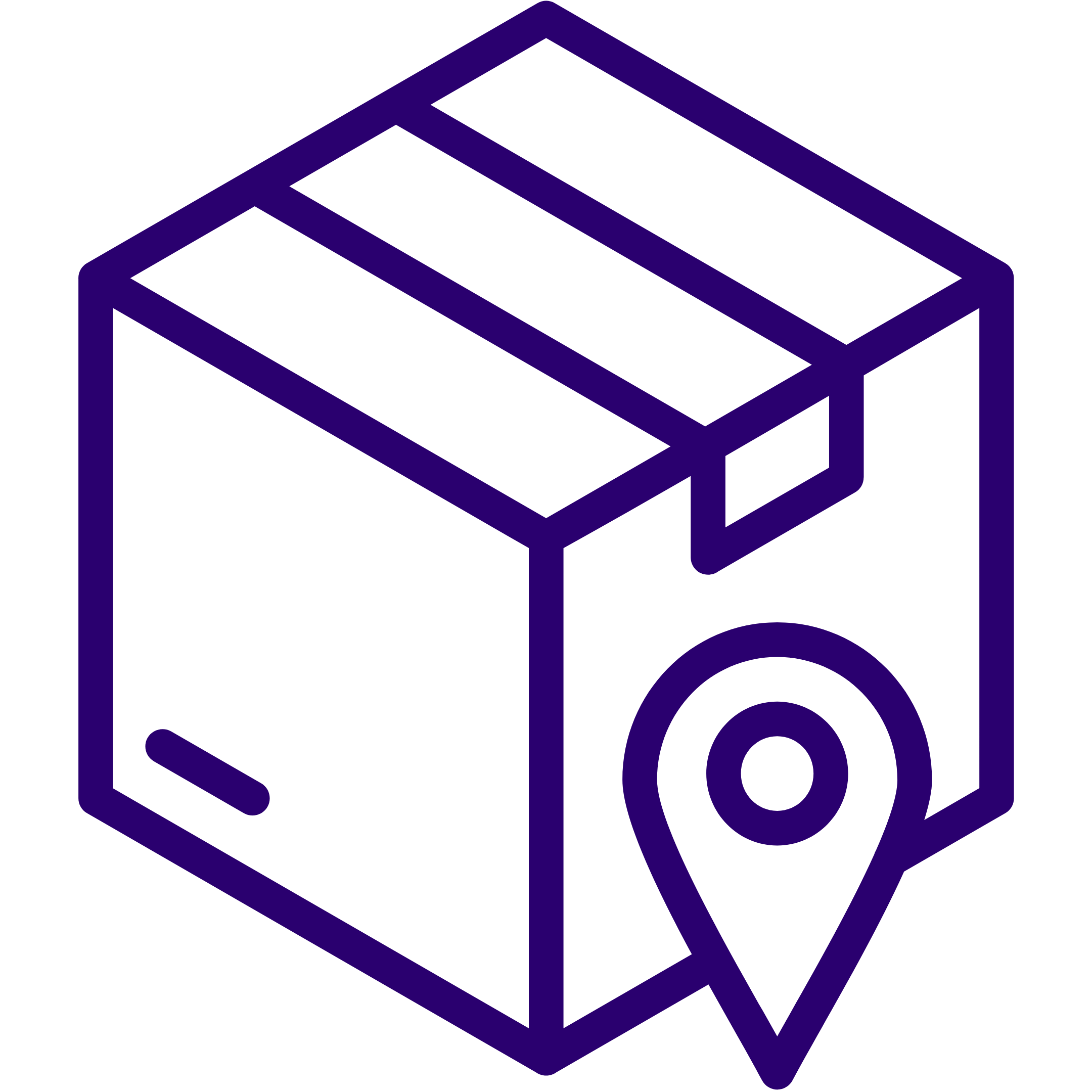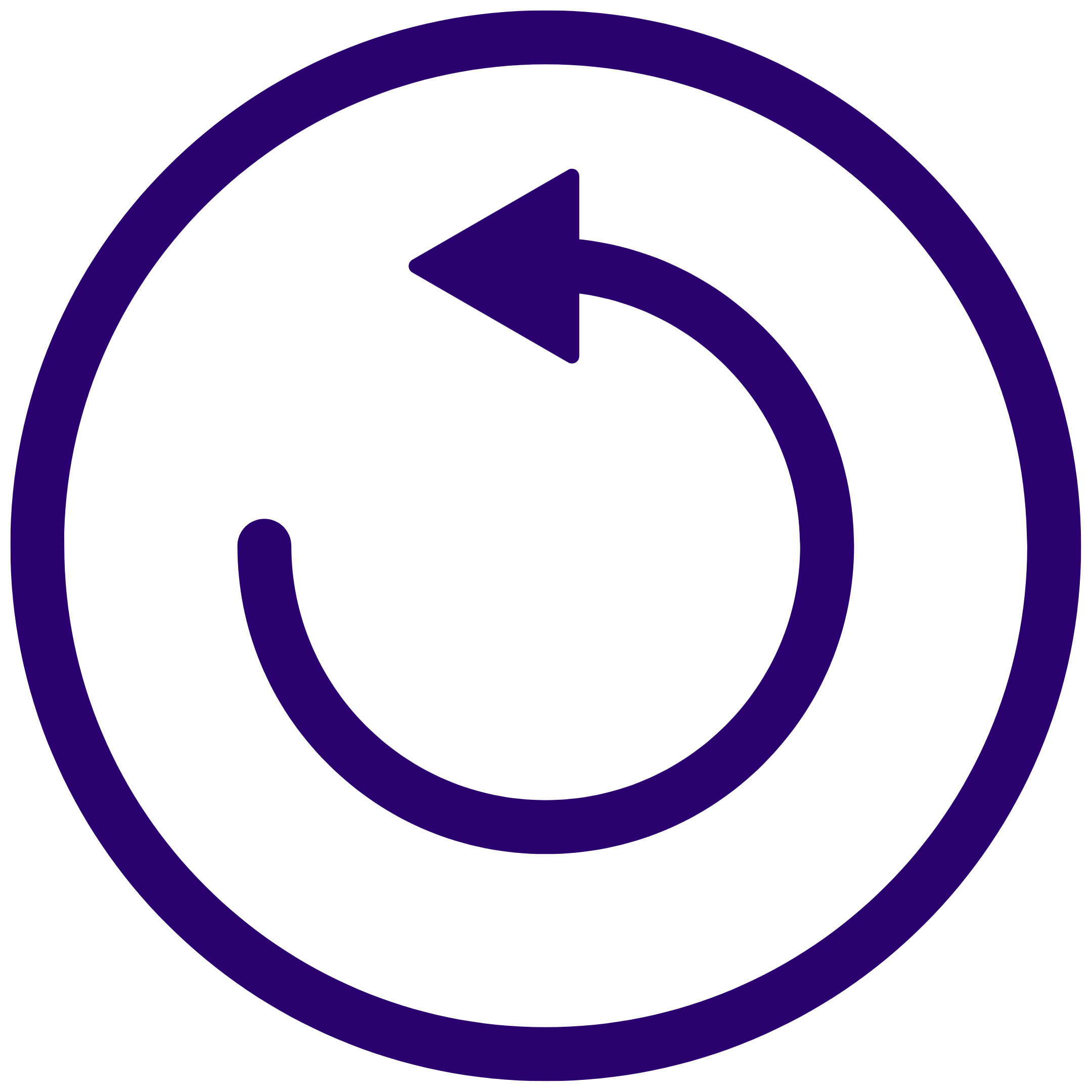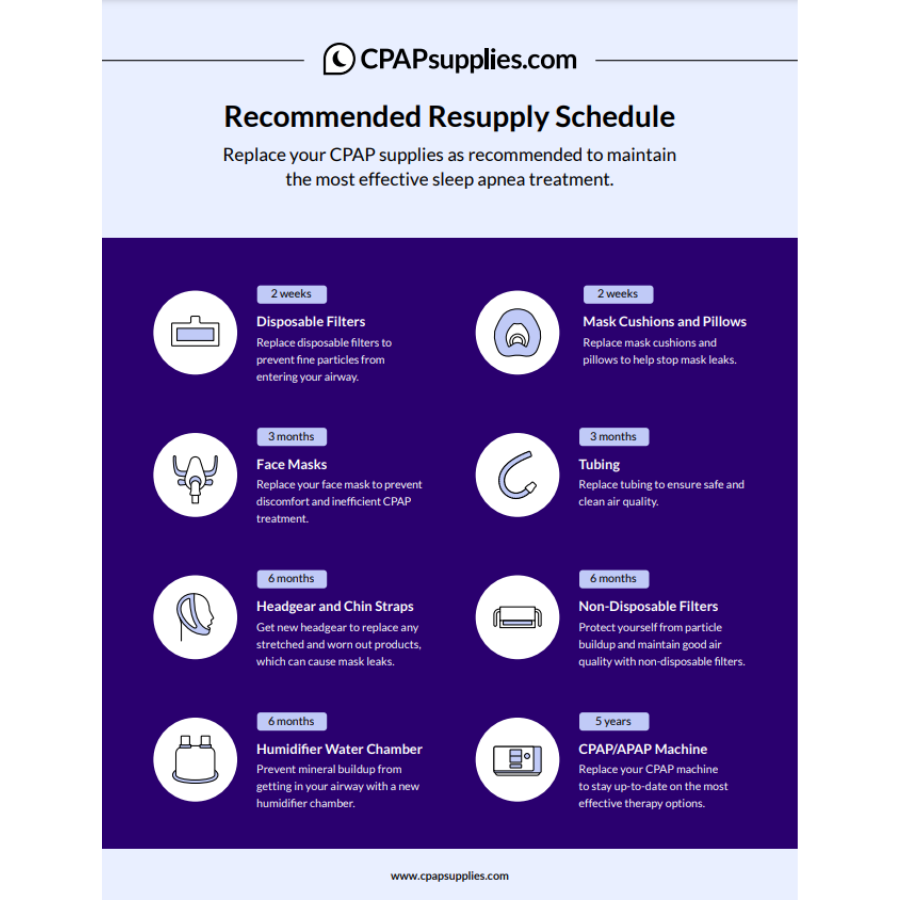Industry Standard CPAP Replacement Schedule
While it may be tempting to save money and only replace CPAP supplies when they are visibly dirty or worn, doing so can come at a serious cost to your health. CPAP supplies are made to be disposable and are manufactured with replacement schedules in mind, with sound medical reasoning behind the industry standard replacement guidelines. The fact that CPAP equipment is placed on one of the most sensitive areas of the body (your face) and aid one of the most important bodily functions (your respiratory health), replacing supplies on schedule is not something to be taken lightly.
CPAP Replacement Part Reference Guide:
| Product | Replacement Time | Why? |
|---|---|---|
| Disposable Filters | 2 per 1 month | These filters are meant to be replaced regularly so that fine particles can be trapped. |
| Cushions and Pillows | 2 per 1 month | Overtime, cushions and pillows break down and cause leaks. Replacing these items will improve sleep therapy. |
| Oral, Nasal, Nasal Pillow and Full Face Masks | Every 3 Months | Masks deteriorate over time, causing discomfort and leaks. To keep your masks clean, try the SoClean machine! |
| Tubing | Every 3 Months | As the tubing gets older, the air quality will worsen. Replacing the tubing keeps the air you are breathing clean and safe. |
| Headgear and Chinstraps | Every 6 Months | Headgear and Chinstraps will stretch overtime, becoming less and less effective. |
| Non-Disposable Filters | Every 6 Months | After 6 months of use, these filters won't be able to prevent particles from entering your machine. It is important to replace filters to maintain high air quality. |
| Humidifier Chamber | Every 6 Months | Mineral buildup can cause sinus irritation. Be sure to wash your humidifier chamber after every use with distilled water, and fully replace after 6 months. |
| CPAP Machine | Every 5 Years | Make sure to replace your CPAP machine every 5 years to stay up to date on the most effective therapy options. |
Top three main reasons to establish a resupply schedule:
-
Bacteria and Skin Irritation
A Harvard Medical School study showed that after 6 months it is impossible to get all the bacteria out of a CPAP mask, regardless of what cleaning supplies are used or how vigorously it is washed. Clean supplies reduce the likelihood of bacteria building up on your skin and causing breakouts or illness.
Remember, what’s inside your mask is getting breathed into your body – repeatedly. If your mask and filter are full of bacteria, that same bacteria can get infiltrated into your lungs and cause infection. A $100 mask is much cheaper than a $500 ER visit or the lifetime cost associated with contracting a disease.
-
Mask Seal
Oils found on the human face naturally cause mask cushions and headgear to deteriorate after a certain amount of time. Furthermore, headgear is made of elastic and will stretch out after continued use. Both of these factors can contribute to mask leaks – making your CPAP machine incapable of doing its job.
-
Compliance
We can’t stress enough how much comfort is truly the key to compliance. When the best mask, mask fit and CPAP pressure have been established, your comfort lies in the cleanliness and condition of your CPAP supplies. The combination of continued CPAP use, regained mental focus, lowered blood pressure and a better mood should be enough to make anyone want to adhere to their resupply schedule.






